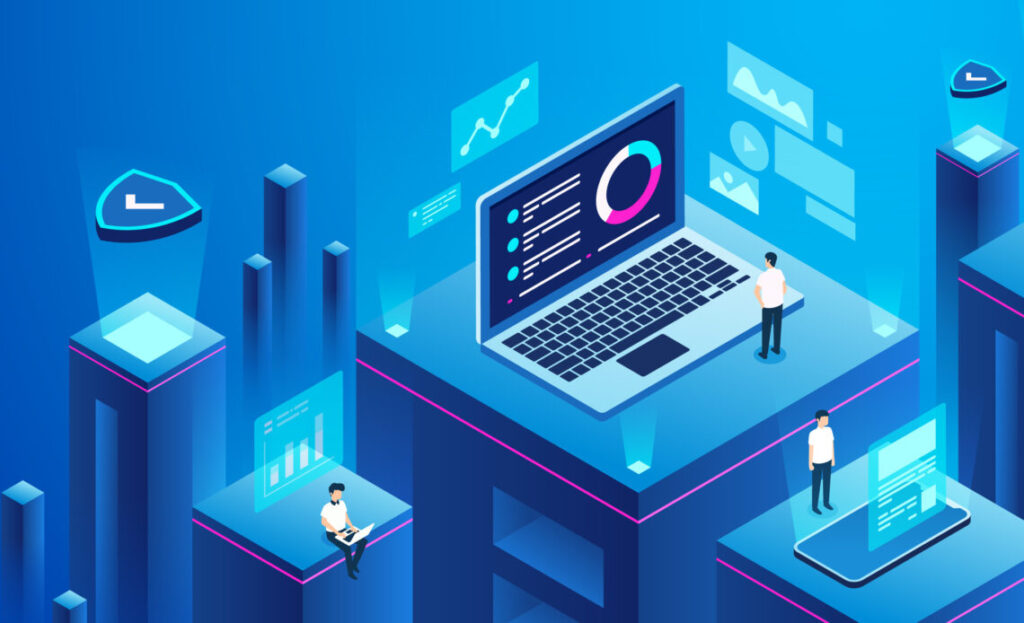Technological advancements have always been a driving force in shaping economies and labor markets. In the modern era, the rapid development of automation, artificial intelligence (AI), and other technologies has had a profound impact on the US job market. Understanding these changes requires thorough Job Market Analysis, leveraging Job Market Data to identify significant trends and shifts. This blog will delve into how technological advancements are influencing the US job market, focusing on job postings, skill requirements, and employment rates, and will highlight the industries most affected by these changes. Additionally, we will explore how Jobspikr helps in obtaining and analyzing this data.
How Automation and AI are Transforming Industries?
Technological advancements, particularly in automation and artificial intelligence, are reshaping the US job market in unprecedented ways. These technologies are transforming how businesses operate, which in turn affects employment patterns, job roles, and required skill sets. Understanding the role of automation and AI in this context is crucial for analyzing current job market trends and predicting future developments.
- Automation and Its Effects
Automation has been a double-edged sword for the job market. On one hand, it has increased efficiency and productivity; on the other, it has rendered certain jobs obsolete. Manufacturing is a prime example where automation has significantly reduced the need for manual labor. Automated systems and robotics have taken over repetitive and physically demanding tasks, leading to a decline in demand for low-skilled workers. However, this shift has simultaneously created a surge in demand for workers who can design, program, and maintain these automated systems.
- Artificial Intelligence Transformations
AI is revolutionizing various sectors by enabling machines to perform tasks that traditionally required human intelligence. From chatbots in customer service to AI-driven analytics in finance, the technology is pervasive. According to recent Job Market Data, there is a growing demand for AI specialists, data scientists, and machine learning engineers. These roles require specialized skills in coding, algorithm design, and data analysis, reflecting a significant shift in the job market towards high-tech, knowledge-intensive professions.
How Technology Shapes Employment Rates?

As technology continues to evolve, its impact on employment rates across different sectors becomes increasingly evident. Analyzing how technological advancements affect employment provides insights into which jobs are growing, which are declining, and how the overall job market is shifting in response to these changes.
- Sectoral Employment Changes
Technological advancements have not impacted all sectors equally. The tech industry has seen a robust increase in employment rates, while traditional manufacturing and some service sectors have experienced job declines. Job Market Data shows that sectors such as information technology, healthcare, and professional services are thriving. In contrast, industries heavily reliant on manual labor, such as retail and manufacturing, face challenges due to automation and digital transformation.
- Geographic Disparities
There are also geographic disparities in how technological advancements affect employment. Tech hubs like Silicon Valley, Austin, and Boston have seen a surge in job opportunities and economic growth. These regions benefit from a concentration of tech companies and a skilled workforce. Conversely, areas dependent on traditional manufacturing may struggle with higher unemployment rates as automation replaces manual jobs. This geographic disparity underscores the need for targeted economic policies and workforce development programs to bridge the gap.
Valuable Insights from Job Market Data Analysis
To understand the full impact of technological advancements on the job market, analyzing comprehensive Job Market Data is essential. This data offers a detailed look at how job postings, skill requirements, and employment trends are evolving, providing a clearer picture of where the job market is headed.
- Job Market Data Analysis
Analyzing Job Market Data provides valuable insights into how technological advancements are reshaping the job market. By examining trends in job postings, skill requirements, and employment rates, we can identify emerging patterns and make informed predictions about future job market trends. For example, the increasing frequency of job postings for roles related to AI and machine learning suggests a growing need for expertise in these areas.
- The Role of Jobspikr
Jobspikr is a powerful tool for obtaining and analyzing Job Market Data. It provides real-time data from millions of job postings, offering a comprehensive view of the labor market. By leveraging Jobspikr, businesses, policymakers, and job seekers can gain a deeper understanding of current trends and make data-driven decisions. Whether it’s identifying in-demand skills, tracking industry growth, or forecasting employment trends, Jobspikr is an invaluable resource for Job Market Analysis.
Top Industries Affected by Technological Changes

Different industries are impacted by technological advancements in various ways. Understanding which sectors are most affected can help businesses and workers prepare for and adapt to these changes. This section explores the industries experiencing significant transformation due to technology.
- Technology Sector
The technology sector itself is at the forefront of job creation. Innovations in software development, cybersecurity, and AI have led to a surge in job opportunities. Companies are investing heavily in research and development, creating high-paying jobs for skilled professionals. According to Job Market Data, roles such as software engineers, data scientists, and AI specialists are in high demand, with competitive salaries and growth prospects.
- Healthcare
The healthcare industry is also experiencing significant changes due to technology. Electronic health records (EHR), telemedicine, and health informatics are transforming patient care and operational efficiency. This shift has increased demand for IT professionals within healthcare settings. Additionally, advancements in medical technology, such as robotics and AI-driven diagnostics, are creating new job opportunities and requiring healthcare professionals to develop new skills.
- Finance
In the finance sector, fintech innovations are reshaping traditional banking and financial services. Automation, blockchain, and AI are improving efficiency and security in financial transactions. This transformation is driving demand for professionals skilled in fintech, cybersecurity, and data analysis. Job Market Analysis indicates that financial institutions are increasingly seeking tech-savvy individuals to navigate this evolving landscape.
- Manufacturing
Manufacturing is one of the sectors most affected by automation. While the number of manual labor jobs is declining, there is a growing need for skilled workers who can manage automated systems. Robotics, AI, and IoT are revolutionizing production processes, leading to higher efficiency and reduced costs. Job Market Data shows a shift towards roles that require technical expertise in operating and maintaining advanced manufacturing technologies.
Strategies to Prepare for the Future Job Market
Preparing for the future job market involves both individual and collective efforts to adapt to technological changes. This section explores the strategies and steps that can be taken to ensure a smooth transition into the tech-driven job market of the future.
- Upskilling and Reskilling
To thrive in the evolving job market, workers must embrace lifelong learning. Upskilling and reskilling are essential to stay competitive. Online courses, certification programs, and vocational training can help individuals acquire new skills and adapt to changing job requirements. Employers also play a crucial role by providing training opportunities and fostering a culture of continuous learning.
- Policy Implications
Policymakers must address the challenges and opportunities presented by technological advancements. This includes investing in education and training programs, supporting innovation, and creating policies that promote job growth in emerging industries. By fostering a supportive environment for technology-driven economic growth, policymakers can help mitigate the negative impacts of automation and ensure a more equitable distribution of job opportunities.
- Embracing Technological Change
Both businesses and individuals must embrace technological change. For businesses, this means investing in new technologies and adapting their operations to leverage the benefits of automation and AI. For individuals, it means staying informed about industry trends and being proactive in acquiring new skills. Embracing change can lead to greater innovation, increased productivity, and improved economic outcomes.
Conclusion
Technological advancements are reshaping the US job market in profound ways. Automation, artificial intelligence, and the increasing demand for tech-savvy professionals are driving significant changes in job postings, skill requirements, and employment rates. Job Market Analysis and Job Market Data provide valuable insights into these trends, helping businesses, policymakers, and job seekers navigate the evolving landscape.
Industries such as technology, healthcare, finance, and manufacturing are experiencing varying degrees of impact, with tech and healthcare seeing robust job growth. To prepare for the future job market, individuals must embrace lifelong learning, and policymakers must create supportive environments for innovation and job growth.
Jobspikr plays a crucial role in providing real-time Job Market Data, enabling stakeholders to make data-driven decisions. By leveraging tools like Jobspikr and staying informed about technological trends, businesses and individuals can harness the opportunities presented by technological advancements and thrive in the dynamic job market.
Embracing change, investing in skills development, and leveraging data-driven insights are key to navigating the future of work. As technology continues to evolve, those who adapt and innovate will be best positioned for success in the ever-changing US job market.
Gain insights into how technological advancements are transforming the US job market with comprehensive job market data from Jobspikr—Sign Up to stay informed and adaptable!



